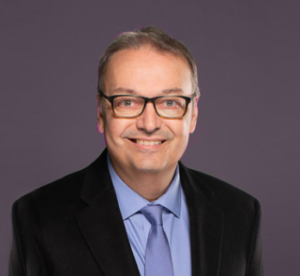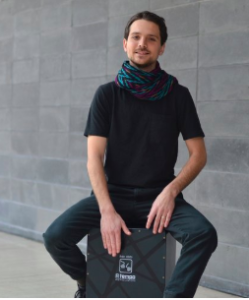In 2016, Mervon Mehta was puzzling over a problem: How was the Royal Conservatory of Music to participate in the celebrations around the 150th anniversary of Confederation?
“I was actually watching one of the federal election leaders’ debates and Justin Trudeau had said something that was vaguely socialist. Stephen Harper turned to him and said, ‘You know Justin,’ looking down his nose, ‘that may work in your circle but old stock Canadians will never go for that’.
“I remember thinking what’s an old stock Canadian. I hadn’t heard that term before. I thought it was so condescending, so politically divisive and a dog whistle and thought well, wait a minute I’m half Saskatchewan and half Mumbai, India. Am I old stock or new stock?
Mehta is the son of Zubin Mehta, the legendary conductor and singer Carmen Lasky. He was born in Vienna but moved to Canada in 1962.
Harper’s words started him thinking.
“I’m interested in how the arts can be used to change conversations around social and political issues.” He has tried to make connections between people before including a concert series that put Israeli and Arab musicians on stage together. As the executive director of performing arts for the Royal Conservatory of Music in Toronto, he oversees Koerner Hall
“No one is under the illusion that we are going to change global politics but at least we can have people of different viewpoints and ethnicities on stage sharing what they do. Maybe that opens door a little bit towards understanding.”
In that light he came up with the idea for KUNÉ: Canada’s Global Orchestra which will perform at Chamberfest on July 27.
The idea for the orchestra was everywhere around him in Toronto where more than half the population was born outside of Canada from a gamut of backgrounds.
He was also thinking about musicians who had played Koerner Hall who had needed an accompanist who could play their kind of music. His staff was always able to find incredible musicians right there in Toronto.
“I thought there had to be a way to give musicians who didn’t have a platform a chance to play together in a band that looked and sounded like Toronto today.”
Toronto had Drake and The Weeknd, but Mehta knew there was another group of musicians not being heard outside of events such as weddings in their communities.
“They are really fine musicians. Some were not playing professionally because they had kids and needed to put food on the table so they were driving a cab or waiting tables.”
The conservatory held an audition with the only criteria being you had to be born outside Canada and you had to be living in Toronto.
“We auditioned 150 people from some 48 countries including some new Syrian refugees and we picked 12.”
The audition process was eye-opening and heartwarming.
“We had some Syrian refugees try out but they weren’t quite ready. We encouraged them to keep trying,” Mehta said.
“We had a 12 year old kid comes to us. He had played violin as a six year old in Damascus then he had to leave and was in a camp for two years without a violin.
“When he got to Canada, he got a violin and he showed up for an audition. What guts to come to the Royal Conservatory and audition. We all had tears in our eyes. He’s now taking lessons from someone here and we’ll see how he progresses.”

Mervon Mehta.
Mehta said it was also important to have an Indigenous member of band to represent the First Peoples welcoming these new Canadians. That person is Alyssa Delbaere-Sawchuk, a Métis fiddler from Winnipeg, who has a doctorate in classical and fiddle music traditions on the viola from the Université de Montréal. The other original members of KUNÉ come from Brazil, Pakistan, Iran, Greece, China, Burkina Faso, Cuba, Mexico, Turkey, Peru and Tibet. The latter member passed away in December and the spot has not been filled.
Matias Recharte is a percussionist from Lima, Peru and a member of KUNÉ.
He told ARTSFILE that he had seen a flier advertising an audition “and it immediately caught my attention because they asked for musicians who knew their traditional music. and were recent immigrants and who were interested in becoming part of this international group of musicians from different countries.
“It resonated with me because I am from Peru. I learned traditional music in my country.”
But he has also studied other forms of music including with Cuban musicians. Today he is studying South Asian percussion including the mridangam with Professor Trichy Sankaran.
He has also studied in The Netherlands at the Rotterdam Conservatory’s school of world music, where he met people from Latin America, all over Europe, Turkey, Greece and India.
After that experience he returned home but wanted more education so he finally landed in Toronto at York University. Today he is working on a PhD in music education at the University of Toronto.
He is always searching for ways to find out more about his own country’s music and the music of other cultures.

Matias Recharte is a member of KUNÉ.
In many ways, he’s the epitome of KUNÉ which means together in Esperanto.
What was great about KUNÉ right from the start was the fact that Recharte met other musicians.
“Toronto has a great music scene but sometimes it’s hard to meet people. You need to meet people musically to show them what you can do.
KUNÉ has helped break down barriers for Recharte. He’s met some new musical friends and he’s still learning, especially about Arabic music. He is also working on side projects with other KUNÉ members.
“Since joining, my musical schedule has exploded.”
“KUNÉ is unique because it’s the only big project right now where people who have emigrated here in an audience can see themselves on stage.
“The immigrant experience isn’t easy. It can be easy to just stay in your community.
“My relationship with Canada is abstract. Canada for me is a tax form or another immigration paper. Now, after six years here, I have relationships with real people in Canada. Now I feel if I would move away I would miss Canada because of these relationships.
“I find I have more in common with these people from all these different places than with other Peruvians. We have music in common and we also have the experience of being immigrants.”
“It’s also cool that it is continuing.
KUNÉ’s membership was finalized by November, 2016. By June 2017, they were performing. That’s when the hard work happened.
Some members of the band read music, some didn’t. Some spoke English, some didn’t.
“We spent up to three months getting to know each other.” They quickly figured out that every song had to be rooted in one country’s music and then expanded to be more universal, music that sounded like Toronto and Canada, in 2017.
“The conceit,” Mehta said, “is we are playing Toronto fusion.
In the end they got it all together for one night “by the skin of our teeth.”
Then people started to hear about KUNÉ. They opened Toronto’s sesquicentennial concert. They played a couple of festivals and the National Arts Centre and, Mehta said, started learning how to be a band.
Then the Banff Centre called offering studio time so they went and recorded an album there. Universal Records heard about that and they put the record out.
All this interest meant they needed an agent so they signed with Opus 3 Artists in new York and are continuing to play together. In November they’ll play some U.S. dates. And next years they play with the Winnipeg Symphony Orchestra and the Kitchener-Waterloo Symphony Orchestra. That has four arrangers busy adapting KUNÉ’s music for these large orchestras.
Mehta, who is pretty busy with his day job, is learning all about the power of a good idea.
“I am not a musician. I am not a music director. I raise money and set the plan and the vision.”
These days he’s trying to figure out the road ahead with an 11-piece band.
“KUNÉ was a one-night stand that has lasted. Now I’m working on raising money to keep it rolling. It’s really a labour of love and a ton of fun.”
Interestingly the American hosts of their tour in the fall are also interested in the message behind KUNÉ. They are going to university campuses to talk to international relations and sociology students about forming the band and the politics and the pitfalls.
“We are not perfect in Canada but we are doing things in better way than many countries are and that’s why it’s resonating with the Americans.”
Chamberfest presents KUNÉ: Canada’s Global Orchestra
Where: Carleton Dominion-Chalmers Centre
When: July 27 at 7 p.m.
Tickets and information: chamberfest.com







